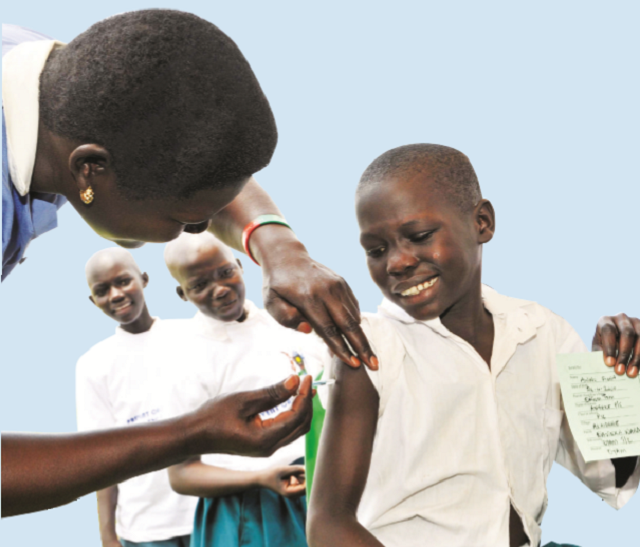
With new vaccines coming at increasing prices, parents are facing tough choices
The numbers of children receiving vaccinations in Uganda is up and the government’s recent move to pass a law criminalising anti-immunisation sentiments appears to be partly behind the surge.
The increasing popularity of vaccination has experts like Dr. Rebecca Nantanda, a pediatrician at the Mulago National Referral Hospital in Kampala, excited.
Nantanda says vaccination rates are going up because people have gained more awareness about diseases and there’s increased fear of infectious diseases. She says even adults who missed being vaccinated are increasingly going back to take shots against cervical cancer, hepatitis B and yellow fever among others.
“Vaccines are the medical world’s greatest ideas,” she told The Independent in a recent interview, “Vaccines are simple and preventive.”
Nantanda explains that when an infection takes place, there is an agent that causes it, and what vaccines – which are agents similar to the disease-causing agent – do when they get into a baby’s body is to trigger it to learn how to do deal with it in a specific unique way. In other words, the children become immunised to the disease.
Nantanda says embracing vaccination is the best thing to do since it is a solution to most public health emergencies and deaths. She says she looks forward to a time when there will be a malaria vaccine for children.
“Epidemics are prevented when 80% to 90% of the people are vaccinated,” she says.
New costly vaccinations
But along with the surge in vaccinations have come an increasing number of new additions to the routine immunisation schedule which initially had only vaccines against the famous ‘six killer diseases’. There is the Pneumococcal Conjugate Vaccine (PCV), Rotavirus vaccine, and the meningitis vaccine. Some parents are getting overwhelmed.
Mariam Nalubega is one of them.
For 14 weeks, Nalubega had been taking her daughter Patricia for the routine vaccinations when she spoke to The Independent. They had completed four rounds of shots and Nalubega thought they would be among the last. They had covered polio, diphtheria, tetanus, whooping cough, pneumonia, Influenza and hepatitis B.
Basing on the known schedule, Nalubega assumed Patricia had only two more immunisations – Vitamin A at six months and Measles at nine months to finish the schedule. But then the nurses at the new extension of Mulago Hospital in Kawempe told her she needed yet another important vaccine. This one is called Rotavirus vaccine.
Although she had never heard of it, Nalubega was willing for Patricia to get it. But there was a problem. The nurses advised her to get the vaccine from a private facility since Mulago does not provide it.
“They told me a dose is sold at Shs70, 000,” she said, “I can’t afford that.”
Her plan now is to wait until Mulago starts offering it so that she can get it free.
 The Independent Uganda: You get the Truth we Pay the Price
The Independent Uganda: You get the Truth we Pay the Price



